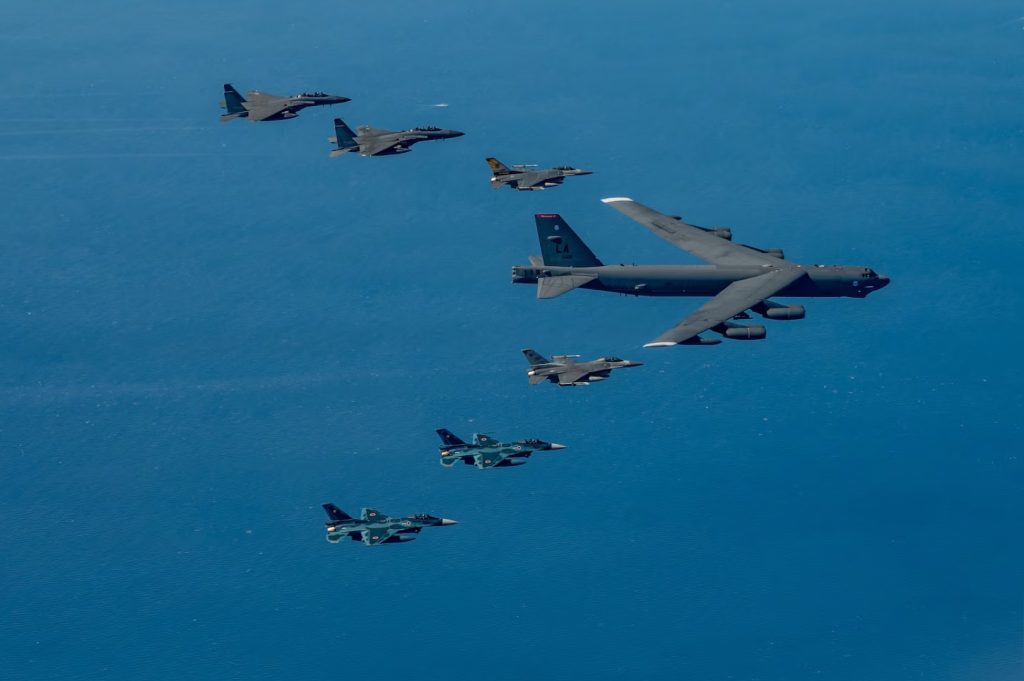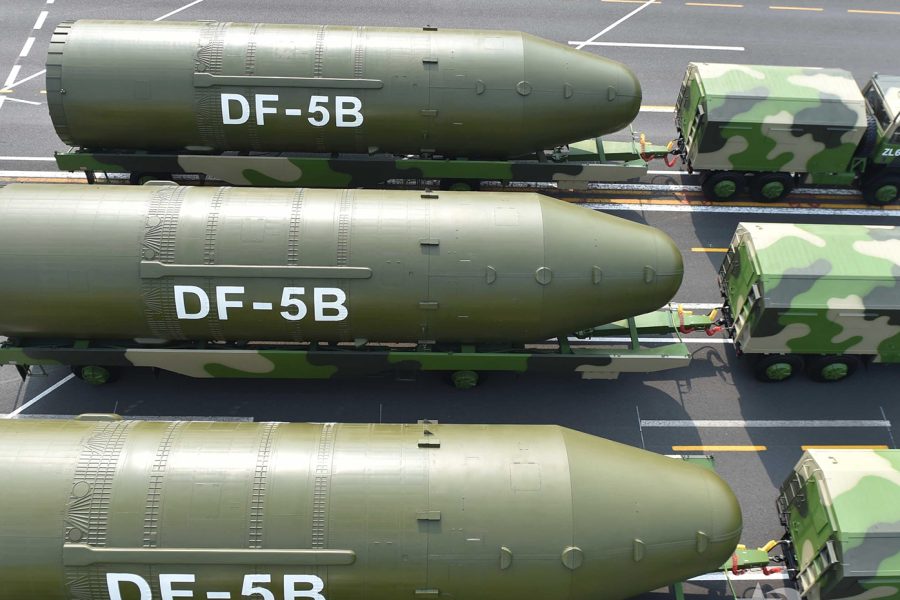The U.S. is currently “ill-equipped” to manage nuclear escalation scenarios in the Indo-Pacific with China, both in the current security environment and in a potential conflict, experts argue in a new report.
Andrew Metrick, Philip Sheers, and Stacie Pettyjohn from the Center for a New American Study authored the research report, funded by the Pentagon’s Defense Threat Reduction Agency.
“The United States is currently ill-equipped in its concepts and capabilities to manage escalation risks in the emerging Indo-Pacific era,” the authors write in the report. “Relying on submarines and dual-capable fighters and bombers for signaling and employment, the U.S. may encounter issues related to platform vulnerability, signaling visibility, and conventional warfighting.”
Tensions in the region remain high—China is building up its nuclear arsenal at a rapid rate and continues to claim it will take Taiwan by force if necessary.
In the event of conflict, especially a protracted one, Metrick, Sheers, and Pettyjohn warn that conditions could be such that “nonstrategic nuclear weapons use is both appealing to the PRC and difficult to manage for the United States.”
So-called tactical nuclear exchanges may not lead to full-scale nuclear war, with smaller, less devastating nuclear weapons used in precision strikes rather than widespread destruction. In this scenario, it is crucial for the U.S. to demonstrate a strong commitment through something “incredibly visible” by effectively deploying nuclear assets to maintain deterrence, the authors argued.
“When we’re talking about intra-war deterrence, you need to be willing and able to use theater non-strategic nuclear arms to show your adversary that you have skin in the game, to demonstrate credibility,” Metrick said during an Aug. 8 event. “What that probably looks like is working with the Air Force and others, to think about how you put the right platforms with the right capabilities in the right places.”
Such moves would be difficult, however, given China’s regional advantages and the fact that one of its allies, North Korea, has its own nuclear weapons to complicate the strategic landscape. This complexity makes effective nuclear signaling difficult, according to Justin Anderson, Senior Policy Fellow at the Center for the Study of Weapons of Mass Destruction, National Defense University.
“Various forms of national-level signals to include attempts at nuclear signaling often have not been successful, at least not successful in communicating the signal that was intended,” said Anderson, adding that it is “very concerning.”

The Pentagon has made several moves aimed at signaling deterrence in the Indo-Pacific this year. It is rotating advanced fighter aircraft to bases in Japan and adjusting its force posture, temporarily relocating F-16s closer to North Korea, and boosting cooperation with nations like the Philippines and Australia. The U.S. also often deploys bomber aircraft and nuclear-powered submarines for joint multilateral exercises with regional allies. While calling these efforts “important,” Anderson said more is needed to effectively convey nuclear deterrence messages.
“You see the bomber sometimes accompanied by allied fighter aircraft, and that sends a really strong and useful signal,” said Anderson. “But beyond capabilities, I would just also note … the importance of mechanisms like the MO link—the Moscow-Washington hotline, something that we don’t have an exact equivalent of with the Chinese.”
The hotline, created during the Cold War, helps prevent nuclear conflicts by enabling swift resolution of misunderstandings. Washington lacks such system with Beijing, as China has long avoided nuclear arms talks with the U.S.
In recent months, there were signs of developing discussions with China. Last month however, Beijing announced it was suspending nuclear talks with the U.S., in retaliation for the nation’s ongoing arms sales to Taiwan. This development adds to existing tensions, especially since Russia also halted discussions on renewing the New START treaty last year. The current agreement with Moscow is set to expire in February 2026.
“I don’t think actually the Russians themselves have fully thought through the implications of what that could mean over the long term,” said Anderson.
This shift would reshape how countries and states approach and manage their nuclear forces, likely making the world even more uncertain. These risks underscore the need for renewed arms control discussions, according to Anderson.
“Major powers at various points have recognized the arms control negotiations and agreements can be a win-win for both sides or all sides involved, and that’s something that can bring them to the negotiating table,” said Anderson. “So, will the U.S.-Russia or U.S.-China, or some other combination of major powers be able to have a mutual realization again that arms control may be beneficial? I certainly think it could happen again in the future, and that’s just based on reading a history, but we’re in a bad place now.”


